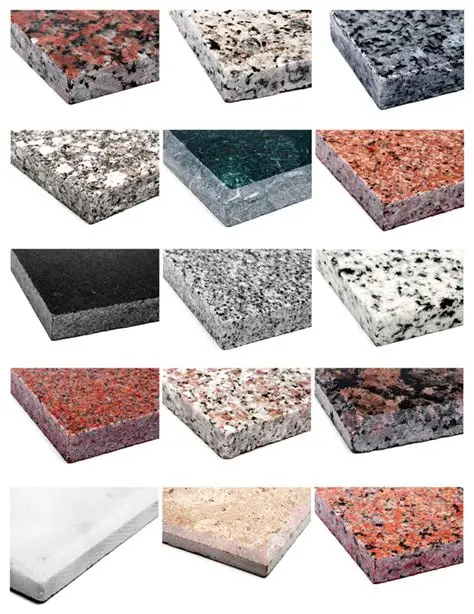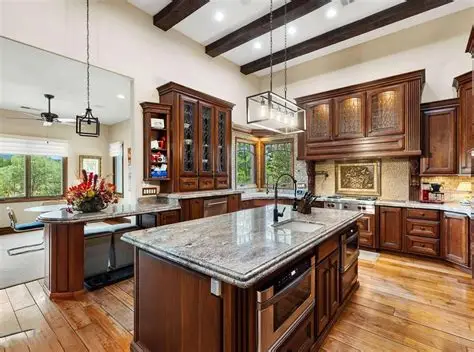Granite is one of the most recognized and widely used natural stones in both architecture and interior design. Known for its strength, durability, and visual appeal, granite is commonly used in kitchen countertops, flooring, monuments, and a variety of construction applications. But what kind of rock is granite really? This article explores granite from its geological roots to its practical uses.

What Is Granite?
Granite is a coarse-grained igneous rock composed mainly of quartz, feldspar, and mica. It forms deep within the Earth’s crust from the slow crystallization of magma, resulting in a dense, durable material. Because of its abundance and physical characteristics, granite stone is considered one of the most important rocks in the continental crust.
Granite Geology and Composition
Granite’s composition generally includes:
- Quartz (20–60%)
- Feldspar (alkali and plagioclase)
- Mica (biotite or muscovite)
- Trace minerals such as amphiboles and magnetite
This mineral makeup gives granite its speckled appearance and varying colorations, ranging from white and pink to grey and black.

How Granite Forms: Geological Process
Granite forms through the slow cooling and solidification of magma beneath the Earth’s surface. This process allows large crystals to form, giving granite its characteristic grainy appearance. Unlike volcanic rocks that cool quickly, granite develops underground, often over millions of years.
Classification of Granite
Granite belongs to the intrusive igneous rock family. Its classification is based on mineral composition and grain size:
- True Granite: Contains quartz and feldspar as dominant minerals
- Granodiorite and Syenite: Variants with differing feldspar ratios
Natural vs. Engineered Granite
While natural granite is quarried from the earth, engineered granite (often referred to in the quartz family) combines natural stone particles with resins. Though both offer durability, natural granite remains the preferred choice for those seeking authenticity and uniqueness.
Characteristics of Granite
Granite is widely appreciated for its:
- Durability and Strength
- Resistance to Heat and Scratches
- Aesthetic Appeal with natural veining and flecks
- Longevity, often lasting decades with proper care
Granite in Modern Interiors
Granite Kitchen Countertops
Granite is a leading choice for kitchen countertops due to its resistance to heat, scratching, and staining when sealed properly. Available in options such as white granite countertops and black granite countertops, it pairs beautifully with different cabinet styles and colors.
Granite Bathroom Countertops
For bathrooms, granite offers a luxurious finish while being water-resistant and easy to maintain. Granite is also used in shower surrounds, vanities, and backsplashes.
Granite Countertop Maintenance
Clean Granite Countertops
To maintain shine and hygiene, clean granite countertops regularly with mild soap and water. Avoid acidic or abrasive cleaners that can etch the surface.
Sealing Granite
Granite should be sealed to protect it from moisture and stains. Most countertops require resealing every 1–2 years.
Repairing Chips in Granite
Minor chips can be repaired using epoxy or resin fillers. For extensive damage, consult a specialist.
Polishing Granite Surfaces
Granite surfaces can be polished with special granite polishers to restore shine.
Removing Stains from Granite
Use a poultice to remove stubborn stains from oil, wine, or rust.
For detailed restoration tips, see:
Granite Countertop Cost and Options
The cost of granite countertops varies by slab type, installation complexity, and region. Options include:
- Affordable granite countertop options for budget-conscious homeowners
- Wholesale granite suppliers for contractors and bulk buyers
The Aardwolf granite countertop collection includes:
- Aardwolf premium granite slabs
- Aardwolf installation services and pricing guide
- Best Aardwolf granite colors for modern kitchens
Design Applications of Granite
Granite is used in:
- Granite backsplash designs
- Pairing granite with cabinet colors for cohesive kitchens
- Landscaping and monuments
Granite’s unique natural look adds richness and elegance to any space.
Natural Stone Countertop Comparisons
Granite vs Quartz Countertops
While quartz is engineered, granite is 100% natural. Both are durable, but granite has a more organic look.
Granite vs Marble: Pros and Cons
Granite is harder and more stain-resistant than marble, though marble offers unmatched veining aesthetics.
Granite vs Soapstone Durability
Granite is generally harder, while soapstone is softer but more heat-resistant.
Granite vs Concrete Countertops
Granite is more durable, stain-resistant, and less prone to cracking than concrete.
Summary
Granite is a coarse-grained, intrusive igneous rock rich in quartz and feldspar. It is renowned for its beauty, strength, and versatility. Whether you’re designing a modern kitchen, a luxurious bathroom, or a landscape feature, granite remains a top-tier natural stone.
Learn more in this guide: Summary About Granite?
Explore related topics:

